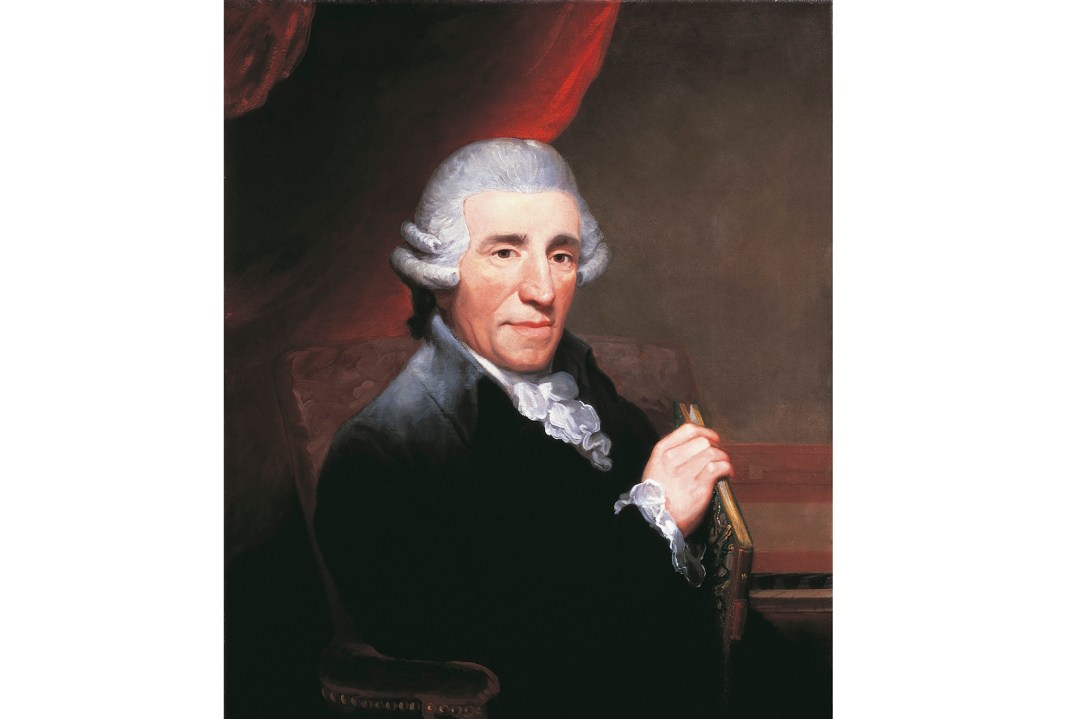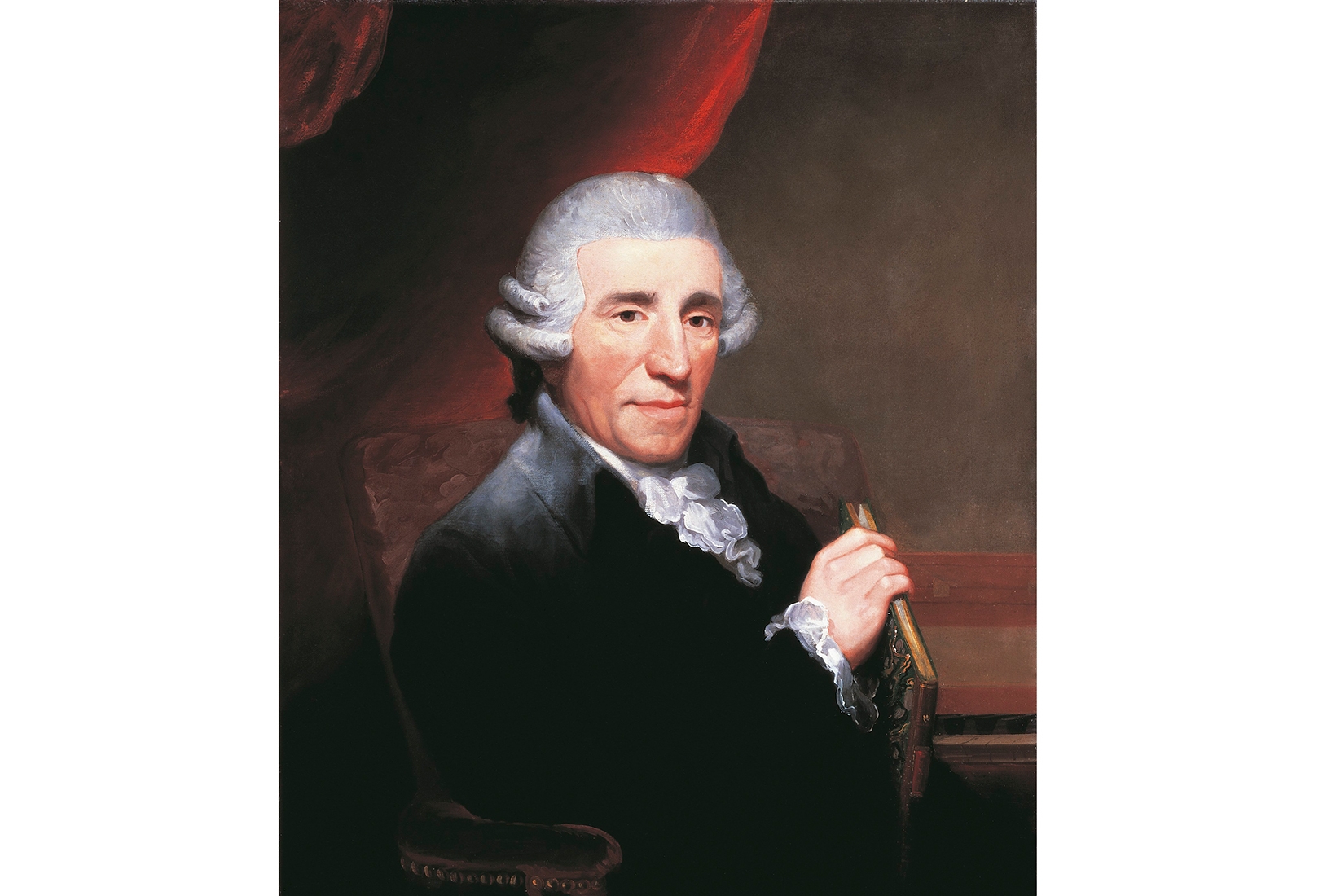As Joseph Haydn was getting out of bed on the morning of 10 May 1809, a cannonball landed in his back garden. Napoleon’s armies were closing on Vienna, and Haydn’s suburban home was in the line of fire. His valet recorded that the bedroom door blew open and every window in the house rattled. Shaking violently, the 77-year-old composer’s first thought was for his household, which at that point comprised six servants and a talking parrot who addressed him as ‘Papa’. ‘Children, don’t be afraid, for where Haydn is, nothing can happen to you,’ he shouted.
This was nothing particularly new. Over a long life Haydn survived smallpox, saw his house burn down (twice) and narrowly escaped castration at the hands of an overenthusiastic choirmaster. Yet he remained an optimist — by all accounts, a man of deep generosity and warmth, who infused his most human qualities into his music. Mozart converses with angels. Beethoven storms the heavens. But Haydn pours out a big glass of Tokaj and invites you in for a really good chat. Describing his recovery from depression in 2004, The Spectator’s pop critic Charles Spencer wrote that Haydn’s ‘geniality and sanity’ reached him when no other music could.
Haydn survived smallpox, saw his house burn down (twice) and narrowly escaped castration
Since lockdown, I’ve had Haydn’s string quartets on continuous play; a relatively new experience because these pieces — some 70 in total — have been my greatest delight as an amateur cellist, and once you’ve played a Haydn quartet, mere listening rarely comes close. Imagine taking part in a four-way conversation in which you’ve miraculously acquired the eloquence of Johnson and the wit of Wilde; in which everyone is their best self, and that zinger of a one-liner that you’d normally remember half an hour too late is there on your lips at precisely the moment you need it.








Comments
Join the debate for just £1 a month
Be part of the conversation with other Spectator readers by getting your first three months for £3.
UNLOCK ACCESS Just £1 a monthAlready a subscriber? Log in